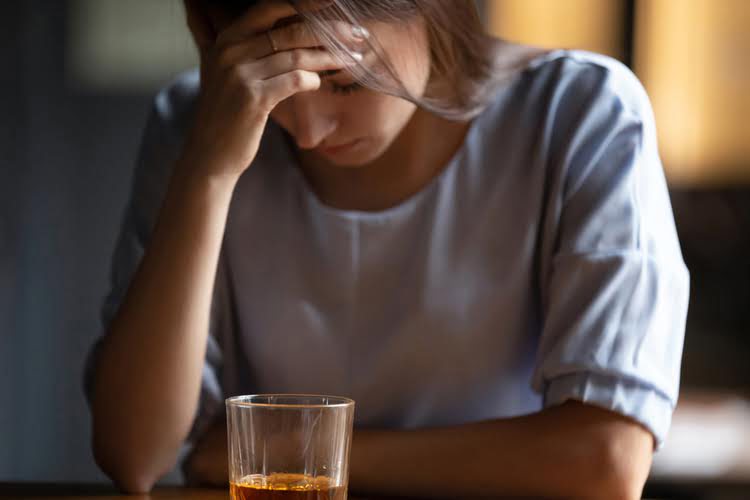Content
There is one benefit of self-help groups that deserves special attention. They can be obstacles to recovery, because individuals may feel that they have been damaged by their addiction and they don’t deserve recovery or happiness. Clinical experience has shown that self-help groups help individuals overcome their guilt and shame of addiction by seeing that they are not alone. How honest should a person be without jeopardizing his or her work or relationships?
The components you acknowledged in your plan at the beginning of your recovery have the potential to change and develop over time, as do the people in your support system. This can be done on your own or by sitting down with a professional. Each individual’s needs will vary, so it is important to assess where you are in your recovery and to behonest with yourself.
Stages of Relapse
They must also overcome the guilt and negative self-labeling that evolved during addiction. Clients sometimes think that they have been so damaged by their addiction that they cannot experience joy, feel confident, or have healthy relationships .
When is relapse most likely?
A relapse is not being able to stay drug-free or sober over time. It can occur if you have a series of lapses close together or a lapse that leads to heavier drug or alcohol use over a longer period. It's most likely to happen a few months after you've quit using drugs or alcohol.
Post-acute withdrawal begins shortly after the acute phase of withdrawal and is a common cause of relapse . Unlike acute withdrawal, which has mostly physical symptoms, post-acute withdrawal syndrome has mostly psychological and emotional symptoms.
Online Therapy
Clinical experience has shown that the following are some of the causes of relapse in the growth stage of recovery. The negative thinking that underlies addictive thinking is usually all-or-nothing thinking, disqualifying the positives, catastrophizing, and negatively self-labeling . These thoughts can lead to anxiety, resentments, stress, and depression, all of which can lead to relapse. Cognitive therapy and mind-body relaxation help break old habits and retrain neural circuits to create new, healthier ways of thinking . During emotional relapse, individuals are not thinking about using. They remember their last relapse and they don’t want to repeat it.
- Remind yourself of the negative consequences you’ve already suffered, and the potential consequences that lie around the corner if you relapse again.
- Rather than fight a craving, knowing that cravings grow in intensity, have a peak and then fade, mindfulness is used to simply ride the craving like a wave.
- As a therapist who has worked with people with substance use disorders, I like to also include the categories “thoughts” and “emotions”.
- Shiffman and colleagues describe stress coping where substance use is viewed as a coping response to life stress that can function to reduce negative affect or increase positive affect.
- Keep it in your purse or your wallet and make sure it’s easily accessible so you can get to it when you need it most.
The most common symptoms include nausea, hot and cold sweats, restlessness, vomiting, diarrhea, insomnia, muscle aches, and severe seizures. People with substance use disorders often relapse during the first weeks. It’s important to see a medical professional and consider going through detox to minimize the serious effects of withdrawal. Urge surfing is one of the mindfulness-based relapse prevention techniques.
Cognitive Behavioural model of relapse
This must be handled delicately, as people who don’t have the necessary coping skills to deal with these problematic issues might be at risk of relapsing. During this time, it’s common for recovering addicts to start feeling quite a bit better. However, some individuals might temporarily feel worse during this stage because they are confronting the damage their addiction caused in every facet of their lives. If you spend time identifying the people, places, things, thoughts, and emotions that lead you to thinking about using drugs or alcohol, you can figure out what your triggers are. Once you’ve identified your triggers, you can identify ways of coping with them.
What are the 4 stages of the addiction cycle?
There are four levels of addiction: physical, emotional, mental, and spiritual. We will discuss each level in-depth and provide tips for overcoming addiction. Most people who try drugs or engage in risky behaviors don't become addicted.
Create a relapse prevention action plan for what to do instead of turning to drugs or alcohol. For example, relapse prevention if going through a breakup could lead to a relapse, think of other outlets for your pain and frustration.
Helping Patients: Ten Clinical Relapse Prevention Strategies
Fortunately, there are relapse prevention strategies you can use to safeguard his or her recovery. When individuals continue to refer to their using days as “fun,” they continue to downplay the negative consequences of addiction.
- MBRP stresses non-judgmental attention to thoughts or urges20.
- It occurs when you have made up your mind to relapse and are actively displaying drug seeking behaviors.
- If you spend time identifying the people, places, things, thoughts, and emotions that lead you to thinking about using drugs or alcohol, you can figure out what your triggers are.
- Imagine what will happen in the short and long-term future if you decide to drink or use.


